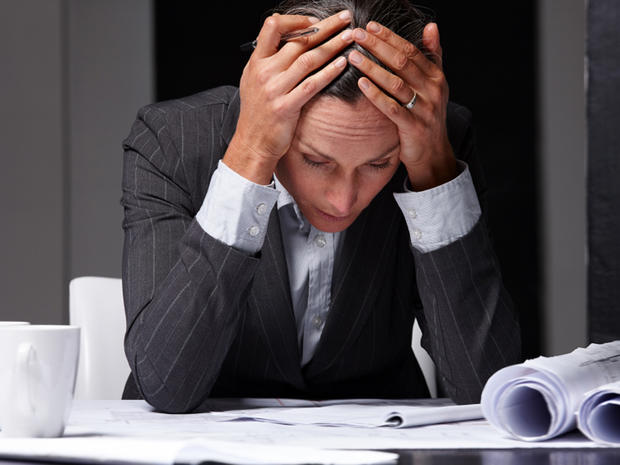Men more attracted to heavier women when stressed, study shows
(CBS News) A new study finds that men prefer heavier women when under stress.
"This suggests that our body size preferences are not innate, but are flexible," said study co-author Martin Tovée, a neuroscientist at Newcastle University in the U.K., told TIME.
For the study, which was published in PLoS ONE on August 8, researchers looked at 81 white males between the ages of 18 to 42. About half of the group was asked to act like they were in a job interview, and were asked to speak in a microphone and countdown by 13 from 1022, as correctly and as quickly as possible in order to mimic a stressful situation.
Twenty minutes later - in order to correspond to peak response - the men were asked to rank their preferences for female body size using 10 photographs which represented a range of BMIs, from underweight to obese. Each man had to rate the attractiveness of the image on a scale of one to nine - nine being the most attractive - and were asked to pick which image they found the most physically appealing. Then they were asked to rate the largest figure they liked and the thinnest body they liked.
Subjects in the control group quietly waited in a separate room during the interview portion of the experiment, and only were asked to rank the photographs.
The stressed men ranked the heavier women slightly higher in terms of attractiveness. Men who were in the non-stressed group found women who were underweight the most attractive, while men in the stressed group found women who were between underweight and normal weight the most appealing. The researchers also found that the stressed men had a wider range of body sizes that they found attractive. The largest size that was appealing was in the overweight range for the stressed men, while the largest size for the non-stressed men stayed within the normal-weight range.
Researchers say that the study shows that environmental factors may play a role in what people perceive as attractive. For example, when resources are scarce, people find a partner with a heavier body more appealing because they are more fit for their surroundings.
"If you follow people moving from low-resource areas to higher resource-areas, you find their preferences shift over the course of about 18 months. In evolutionary psychology terms, you try to fit your preferences to what works best in a particular environment," Tovee said to the BBC.
However, Steve Gangestad, a professor of psychology at the University of New Mexico, who was not involved with the study, proposed to HealthDay that the stressful situation might have lowered the subject's "social self-esteem."
"Perhaps, then, this is the reason men in that condition were less rejecting of body types that, given Western norms, are generally less preferred," he explained.
The researchers caution that the study does not show if stress affects how women perceive men or how stressed the 41 men really were. Still, they find the subject intriguing because body image issues are so prevalent, and they believe it is important to understand how outside influences can change people's mentality about attractiveness.
"Tovee told HealthDay, "It is also important to understand how stressful changing environmental conditions - such as rapid industrialization in the developing world - may alter peoples' body shape preferences and ideals and the health implications for these changes."
